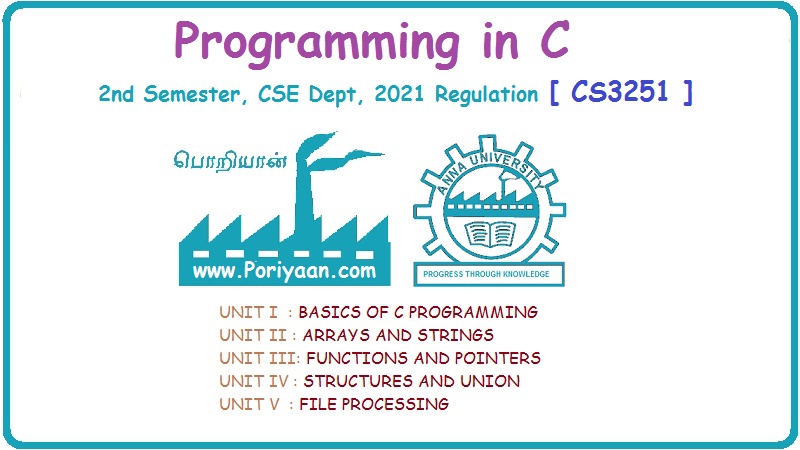Programming in C: Unit III (a): Functions
Recursion Versus Iteration
Programming
Recursion is more of a top-down approach to problem solving in which the original problem is divided into smaller sub-problems.
RECURSION
VERSUS ITERATION
Recursion
is more of a top-down approach to problem solving in which the original problem
is divided into smaller sub-problems. On the contrary, iteration follows a
bottom-up approach that begins with what is known and then constructing the
solution step by step.
Recursion
is an excellent way of solving complex problems especially when the problem can
be defined in recursive terms. For such problems, a recursive code can be
written and modified in a much simpler and clearer manner.
However,
recursive solutions are not always the best solutions. In some cases, recursive
programs may require substantial amount of run-time overhead. Therefore, when
implementing a recursive solution, there is a trade- off involved between the
time spent in constructing and maintaining the program and the cost incurred in
running- time and memory space required for the execution of the program.
Whenever
a recursive function is called, some amount of overhead in the form of a run
time stack is always involved. Before jumping to the function with a smaller
parameter, the original parameters, the local variables, and the return address
of the calling function are all stored on the system stack. Therefore, while
using recursion a lot of time is needed to first push all the information on
the stack when the function is called and then time is again involved in
retrieving the information stored on the stack once the control passes back to
the calling function.
To
conclude, one must use recursion only to find solution to a problem for which
no obvious iterative solution is known. To summarize the concept of recursion,
let us briefly discuss the pros and cons of recursion.
The
advantages of using a recursive program include the following:
•
Recursive solutions often tend to be shorter and simpler than non-recursive
ones.
•
Code is clearer and easier to use.
•
Recursion works similar to the original formula to solve a problem.
•
Recursion follows a divide and conquer technique to solve problems.
•
In some (limited) instances, recursion may be more efficient.
The
drawbacks/disadvantages of using a recursive program include the following:
•
For some programmers and readers, recursion is a difficult concept.
•
Recursion is implemented using system stack. If the stack space on the system
is limited, recursion to a deeper level will be difficult to implement.
•
Aborting a recursive process in midstream can be a very slow process.
•
Using a recursive function takes more memory and time to execute as compared to
its non-recursive counterpart.
•
It is difficult to find bugs, particularly while using global variables.
The
advantages of recursion pays off for the extra overhead involved in terms of
time and space required.
Programming in C: Unit III (a): Functions : Tag: : Programming - Recursion Versus Iteration
Related Topics
Related Subjects
Programming in C
CS3251 2nd Semester CSE Dept 2021 | Regulation | 2nd Semester CSE Dept 2021 Regulation
